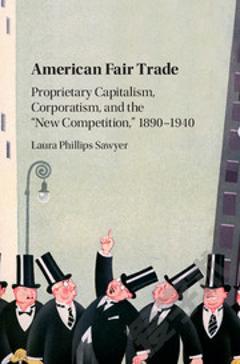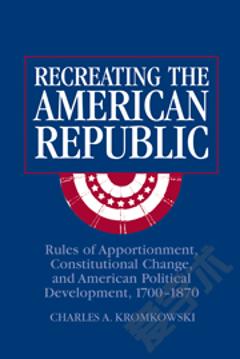The Corporate Reconstruction of American Capitalism, 1890–1916: The Market, the Law, and Politics
At the turn of the twentieth century American politics underwent a profound change, as both regulatory minimalism and statist command were rejected in favor of positive government engaged in both regulatory and distributive roles. Through a fresh examination of the judicial, legislative, and political aspects of the antitrust debates in the years from 1890–1916, Martin Sklar shows that the arguments did not arise simply because of competition versus combination, but because of the larger question of the proper relations between government and the market and between state and society.
{{comment.content}}








 京公网安备 11010802027623号
京公网安备 11010802027623号